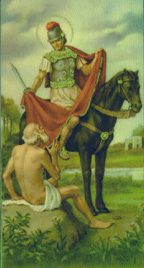We ask you, humbly: don't scroll away.
Hi readers, it seems you use Catholic Online a lot; that's great! It's a little awkward to ask, but we need your help. If you have already donated, we sincerely thank you. We're not salespeople, but we depend on donations averaging $14.76 and fewer than 1% of readers give. If you donate just $5.00, the price of your coffee, Catholic Online School could keep thriving. Thank you.Help Now >
Actus et Potentia
FREE Catholic Classes
A technical expression in scholastic phraseology.
I. The terms actus and potentia were used by the scholastics to translate Aristotle's energeia or entelecheia , and dynamis . There is no single word in English that would be an exact rendering of either. Act, action, actuality, perfection, determination express the various meanings of actus ; potency, potentiality, power, capacity, those of potentia . In general, potentia means an aptitude to change, to act or to be acted upon, to give or to receive some new determination. Actus means the fulfilment of such a capacity. So, potentia always refers to something future, which at present exists only as a germ to be evolved; actus denotes the corresponding complete reality. In a word, potentia is the determinable being, actus the determined being. The term actus , therefore, has a much greater extension than act or operation. Every operation is an actus , because it is the complement of a power; but all other perfections and determinations, whatever be their nature, are also actus . On the other hand, the being in potentiâ is not to be identified with the possible being. The latter belongs to the logical order; it is a notion whose elements involve no contradiction. The former belongs to the real order; it exists in a subject which, though undetermined, is capable of determination. Potentia is more than a mere statement of futurity, which has reference to time only; it implies a positive aptitude to be realized in the future. It would also be a mistake to identify the scholastic actus and potentia with the actual and potential energy of physics. These terms apply only to material substances, and are exclusively dynamic; they signify the capacity for doing work, or the actual performing of work. The scholastic terms apply to all, even spiritual, beings, and refer to any reality which they possess or can acquire. The Aristotelian "energy" ( actus ) as such, i.e., considered as actuality, can never be potential, these two terms being opposed to each other. Actuality and potentiality are mutually exclusive, since one means the presence, and the other the absence, of the same determination. Yet, in all beings except God ( see ACTUS PURUS ) there is a combination of actuality and potentiality; they possess some determinations and are capable of acquiring others. Moreover, the same reality may be considered as actuality or potentiality, according as we take a retrospective or a prospective point of view. In man, skill and science are actualities if we compare them to human nature, which they presuppose. But if we compare them to the actions themselves, or to the actual recall of acquired knowledge to consciousness, they are powers, or potentiae . If we keep the same point of view, it is impossible for the same thing to be at the same time in actu and in potentiâ with regard to the same determination.
Aristotle and St. Thomas explain this theory by many illustrations, one of which will suffice. The statue exists potentially in the block of marble, because marble has an aptitude to receive the shape of a statue. This aptitude is something real in the marble, since many other substances are deprived of it. It is a receptive potentiality. With regard to the same statue, the sculptor has the power, by his action, to carve the marble into the form of a statue. His is an active power, a real skill or ability which is lacking in many other persons. In order to have the actual statue ( actus ), it is necessary for the sculptor to exercise ( actus ) his real skill ( potentia ) on a substance which is not yet a statue, but which has a real aptitude ( potentia ) to become one. I can form no idea either of the marble's potentiality or of the sculptor's skill unless I first know what is meant by an actual statue. In the same manner, the man born blind is unable to understand what is meant by the faculty of vision. In general, potentia has no meaning, and cannot be defined except through the corresponding actus .
II. The distinction between potentia and actus is at the basis of, and pervades, the whole scholastic system of philosophy and theology. Whatever is determinable is considered as potential with regard to the actual determination. Genus and species, subject and predicate, quantity and shape, child and adult, matter and form of the sacraments, etc., are examples of potentiality and actuality. Here we must confine ourselves to the fundamental applications in metaphysics and in psychology. (1) In metaphysics the distinction runs through the ten Aristotelian categories. All being, whether substance or accident, is either in actu or in potentiâ . The essence of creatures is a potentiality with regard to their existence. Material substances are composed of primary matter and substantial form (see Matter and Form), matter being a pure potentiality, i.e., wholly undetermined, and form being the first determination given to matter. Efficient causality is also an application of potentiality and actuality; the cause, when at rest, remains able to act. Change is a transition from the state of potentiality to that of actuality. Generation, growth, and evolution suppose a capacity which becomes fulfilled. (2) In psychology special emphasis is laid on the reality of the potentiae , or faculties, and their distinction both from the soul and from their operations. External senses are determined or actualized by an external stimulus (see Species ), which gives them the determination necessary to the act of perception. The internal senses ( sensus communis, phantasia, memoria, aestimativa ) depend on external sensations for their exercise. Memory and imagination preserve in potentiâ traces of past impressions, and when the proper conditions are verified the image becomes actual. We have no innate ideas, but in the beginning human intelligence is simply a power to acquire ideas. By its operation, the active power of the intellect ( intellectus agens ) forms the species intelligibilis or the determination necessary to the intelligence ( intellectus possibilis ) for its cognitive act. All tendency and desire is actualized by some good which one strives to acquire. In rational psychology man is conceived as one substantial being, composed of body and soul, or matter and form, united as potentia and actus .
There is a tendency today in nearly all the sciences towards "actuality" theories. But, if analyzed carefully, such theories will necessarily yield potential elements. In all things we find capacities for further development and evolution, forces and aptitudes which come to be utilized little by little. In scholastic terminology these are now real, but not actual. They exist only as potentiae , which, to manifest themselves, await the proper actualization.
Join the Movement
When you sign up below, you don't just join an email list - you're joining an entire movement for Free world class Catholic education.
-

-
Mysteries of the Rosary
-
St. Faustina Kowalska
-
Litany of the Blessed Virgin Mary
-
Saint of the Day for Wednesday, Oct 4th, 2023
-
Popular Saints
-
St. Francis of Assisi
-
Bible
-
Female / Women Saints
-
7 Morning Prayers you need to get your day started with God
-
Litany of the Blessed Virgin Mary
The Power of the Rosary: Why Praying the Rosary Matters for Catholics
-

Lasers Reveal Hidden Mayan City of Valeriana with 6,500 Structures in Mexico
-

Embracing Peace and Unity in a Time of Division
-
The 'Black Legend': Historian Argues Anti-Catholic Bias in Spanish Conquest Narratives
-
This Catholic Hero Who Fought Against Communism Should Be Released Immediately
Daily Catholic
 Daily Readings for Monday, November 11, 2024
Daily Readings for Monday, November 11, 2024 St. Martin of Tours: Saint of the Day for Monday, November 11, 2024
St. Martin of Tours: Saint of the Day for Monday, November 11, 2024 Prayer for Deceased Veterans: Prayer of the Day for Monday, November 11, 2024
Prayer for Deceased Veterans: Prayer of the Day for Monday, November 11, 2024- Daily Readings for Sunday, November 10, 2024
- St. Leo the Great: Saint of the Day for Sunday, November 10, 2024
- Evening Prayers: Prayer of the Day for Saturday, November 09, 2024
![]()
Copyright 2024 Catholic Online. All materials contained on this site, whether written, audible or visual are the exclusive property of Catholic Online and are protected under U.S. and International copyright laws, © Copyright 2024 Catholic Online. Any unauthorized use, without prior written consent of Catholic Online is strictly forbidden and prohibited.
Catholic Online is a Project of Your Catholic Voice Foundation, a Not-for-Profit Corporation. Your Catholic Voice Foundation has been granted a recognition of tax exemption under Section 501(c)(3) of the Internal Revenue Code. Federal Tax Identification Number: 81-0596847. Your gift is tax-deductible as allowed by law.







 Daily Readings for Monday, November 11, 2024
Daily Readings for Monday, November 11, 2024 St. Martin of Tours: Saint of the Day for Monday, November 11, 2024
St. Martin of Tours: Saint of the Day for Monday, November 11, 2024 Prayer for Deceased Veterans: Prayer of the Day for Monday, November 11, 2024
Prayer for Deceased Veterans: Prayer of the Day for Monday, November 11, 2024

